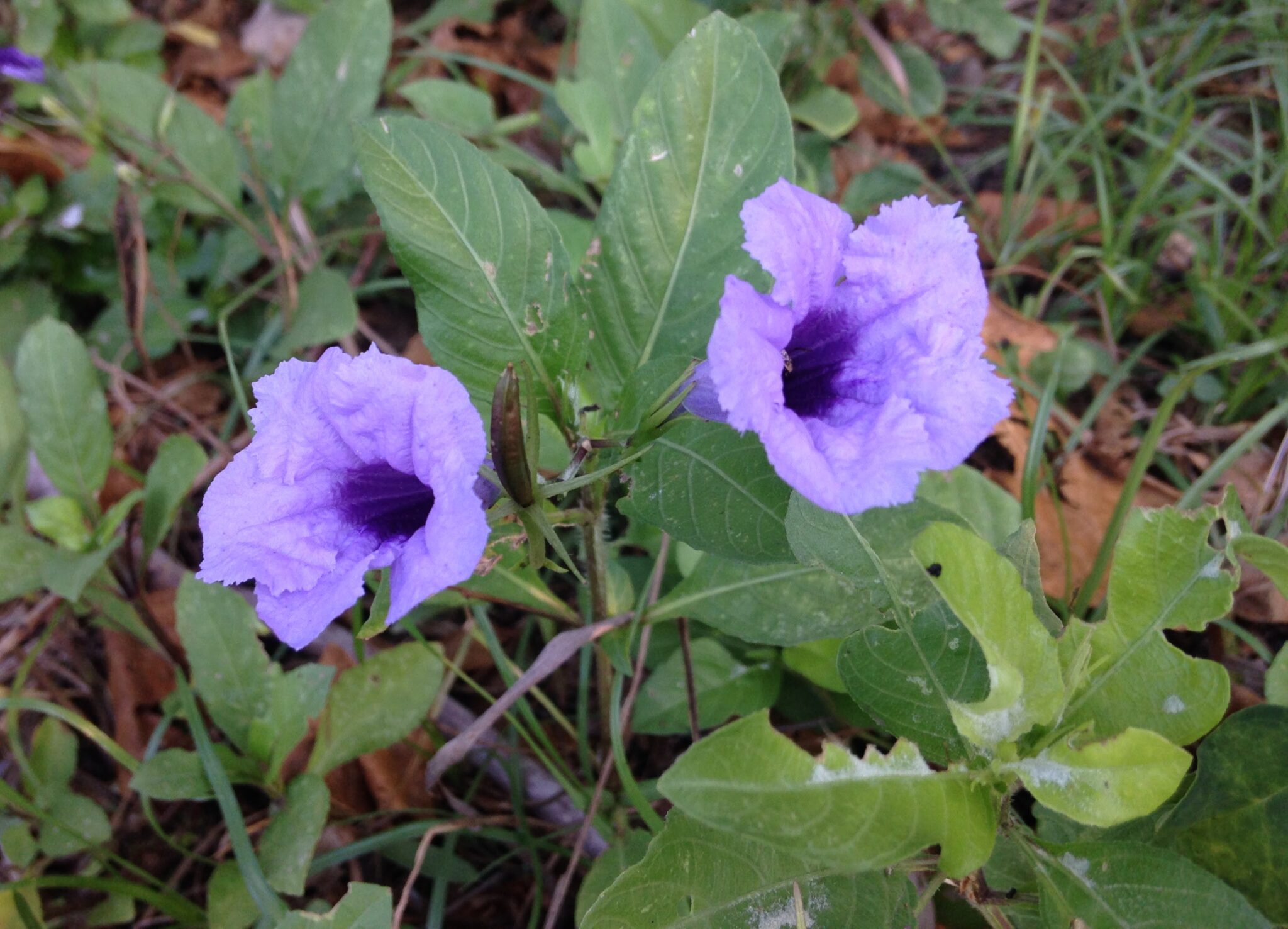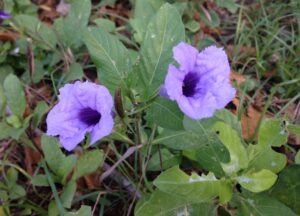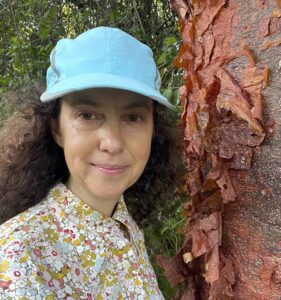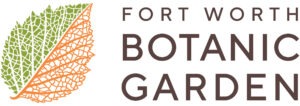
- News & Publications
- News
- Support
- About Us
- Education
- Research
- Research Programs
- Herbarium
- Library & Special Collections
- About the Library
- Library Exhibitions
- The Arader Natural History Collection of Art
- The Stansbery Collection for Botanical Art
- Rare Book Room Collection
- The Oliver G. Burk Children’s Collection
- History of the Library
- Library Inventory
- Library Archives Collection
- Archive Lens
- Collections Lens
- Botany Stories
- Discovery Resources
- Participate
- BRIT Press
- Research Resources
- Collections
October Lunchtime Lecture: Caribbean Urban Ethnobotanies in New York City
“Caribbean Urban Ethnobotanies in New York City”
A (Virtual) Lunchtime Lecture by Dr. Ina Vandebroek
Join us as ethnobotanist Dr. Ina Vandebroek from The University of the West Indies in Mona, Jamaica, shares her ethnobotanical research. For more than two decades, researchers at The New York Botanical Garden have studied urban ethnobotany—particularly the knowledge and use of plants for community healthcare—in collaboration with several Caribbean and Latino communities in New York City. Urban ethnobotany research offers opportunities to compare patterns of traditional knowledge among these communities, and provides insights into the articulation of this knowledge with mainstream (biomedical) healthcare. This presentation will focus on six lessons learned from research carried out since 2005. It makes a plea for considering traditional knowledge as a component of dynamic cultural knowledge systems that are rooted (but not stuck) in the past, and that respond actively to changing contexts of emerging diseases. At the same time, this research highlights and celebrates the biocultural heritage of diaspora communities that persists in the urban environment. This 1-hr seminar will include a short Q&A session after the lecture.

Ruellia tuberosa L. (Acanthaceae) has a native range from Mexico to northern South America and Peru and the Caribbean and is one of the popular medicinal plants in the New York City Caribbean diaspora (Credit: I. Vandebroek)

Dr. Ina Vandebroek is a Senior Lecturer in the Department of Life Sciences & a Senior Research Fellow with the Natural Products Institute, both at The University of the West Indies, Mona Campus, Jamaica. She is also an Honorary Research Associate of the New York Botanical Garden. Dr. Vandebroek’s research is community-based and centers around the interconnectedness of Caribbean biological and cultural diversity, seeking to understand patterns of traditional knowledge about the environment and cultural plant use for health, well-being, and food security.
This virtual seminar will be broadcast using the Zoom platform. Click here to connect to the event. The host will admit you once the event begins. Guests will be muted upon entry to the session. Lecture begins at noon (Central) and includes a chat-based Q&A with the speaker. This event has ended. A recording of the lecture can be viewed here: https://youtu.be/Mo4jEl89CPM. Check out past lectures here.
About the Research Lecture Series
The BRIT Research Lecture Series is designed to create community wide conversation about a diverse range of important and rapidly developing topics. This series gives scientists and speakers a forum for sharing the most current information about their areas of expertise and allows the public to interact with leading members of the local, national, and international scientific community. Read more at fwbg.org/events/lecture-series.
Date
- Oct 04 2022
- Expired!
Time
(online)- 12:00 pm - 1:00 pm

Organizer
Brooke Byerley Best
Organizer
Brooke Byerley Best
October Lunchtime Lecture: Caribbean Urban Ethnobotanies in New York City
Date
- Oct 04 2022
- Expired!
Time
(online)- 12:00 pm - 1:00 pm
Organizer
Brooke Byerley Best
Organizer
Brooke Byerley Best
“Caribbean Urban Ethnobotanies in New York City”
A (Virtual) Lunchtime Lecture by Dr. Ina Vandebroek
Join us as ethnobotanist Dr. Ina Vandebroek from The University of the West Indies in Mona, Jamaica, shares her ethnobotanical research. For more than two decades, researchers at The New York Botanical Garden have studied urban ethnobotany—particularly the knowledge and use of plants for community healthcare—in collaboration with several Caribbean and Latino communities in New York City. Urban ethnobotany research offers opportunities to compare patterns of traditional knowledge among these communities, and provides insights into the articulation of this knowledge with mainstream (biomedical) healthcare. This presentation will focus on six lessons learned from research carried out since 2005. It makes a plea for considering traditional knowledge as a component of dynamic cultural knowledge systems that are rooted (but not stuck) in the past, and that respond actively to changing contexts of emerging diseases. At the same time, this research highlights and celebrates the biocultural heritage of diaspora communities that persists in the urban environment. This 1-hr seminar will include a short Q&A session after the lecture.

Ruellia tuberosa L. (Acanthaceae) has a native range from Mexico to northern South America and Peru and the Caribbean and is one of the popular medicinal plants in the New York City Caribbean diaspora (Credit: I. Vandebroek)

Dr. Ina Vandebroek is a Senior Lecturer in the Department of Life Sciences & a Senior Research Fellow with the Natural Products Institute, both at The University of the West Indies, Mona Campus, Jamaica. She is also an Honorary Research Associate of the New York Botanical Garden. Dr. Vandebroek’s research is community-based and centers around the interconnectedness of Caribbean biological and cultural diversity, seeking to understand patterns of traditional knowledge about the environment and cultural plant use for health, well-being, and food security.
This virtual seminar will be broadcast using the Zoom platform. Click here to connect to the event. The host will admit you once the event begins. Guests will be muted upon entry to the session. Lecture begins at noon (Central) and includes a chat-based Q&A with the speaker. This event has ended. A recording of the lecture can be viewed here: https://youtu.be/Mo4jEl89CPM. Check out past lectures here.
About the Research Lecture Series
The BRIT Research Lecture Series is designed to create community wide conversation about a diverse range of important and rapidly developing topics. This series gives scientists and speakers a forum for sharing the most current information about their areas of expertise and allows the public to interact with leading members of the local, national, and international scientific community. Read more at fwbg.org/events/lecture-series.
